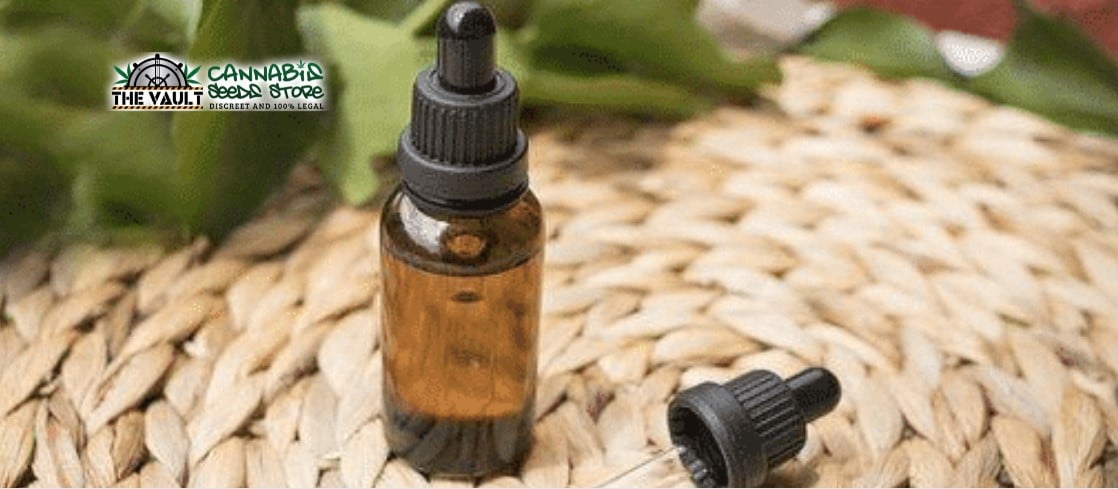
Cannabis produces hundreds of compounds. These compounds broadly fall into three distinct groups, namely cannabinoids, terpenes, and flavonoids.
Cannabinoids refer to compounds that account for the majority of marijuana’s therapeutic properties. The most common cannabinoids include cannabidiol (CBD) and tetrahydrocannabinol (THC).
Besides CBD and THC, researchers have identified over 110 other cannabinoids in the cannabis plant. However, studies have been limited to CBD, THC, and a few others like cannabigerol (CBG), cannabinol (CBN), and cannabichromene (CBC).
Terpenes are compounds that give cannabinoids their specific smell aroma. Marijuana contains over 200 terpenes. Popular ones include linalool, myrcene, and pinene. Unlike cannabinoids that are almost unique to cannabis, terpenes occur in a host of other plants, such as pine and lavender.
Lastly, flavonoids are compounds that mainly act as antioxidants. Antioxidants ward off diseases by preventing cell damage occasioned by oxidative stress. Just like terpenes, flavonoids occur in a range of other herbal extracts.
This post examines the role of terpenes in cannabidiol products.
Do CBD Products Contain Terpenes?
We’ve just mentioned that terpenes are among the three major compounds that occur naturally in cannabis, the other two being cannabinoids and flavonoids. We’ve also pointed out that cannabidiol belongs in the cannabinoid group. Therefore, you could be wondering if CBD products can contain terpenes.
Like all cannabinoids, CBD may or may not contain terpenes. It all depends on the specific processes that the compound was subjected to during extraction.
It’s important to establish whether a CBD product contains terpenes before investing in quality organic hemp nugs from established retailers. Even better, it would help to know the specific terpenes in the CBD product and what the effects of these compounds are.
So, which CBD products contain terpenes?
CBD goods usually bear three different labels, depending on the specific marijuana ingredients in them. The labels include ‘isolates,’ ‘broad-spectrum,’ and ‘full-spectrum.’
1. CBD Isolates
Isolates refer to CBD goods formulated with cannabidiol as the sole cannabinoid. These products are typically available in solid form and boast incredibly high CBD potencies. Most isolates don’t contain terpenes.
2. Broad-spectrum CBD
Broad-spectrum CBD goods contain cannabidiol and a range of other cannabinoids, apart from THC. Such products are ideal for people seeking to benefit from marijuana’s therapeutic properties without getting intoxicated in the process. Note that THC is the primary chemical in weed that accounts for much of the plant’s psychoactive effects. Broad-spectrum CBD products generally contain terpenes.
3. Full-spectrum CBD
Full-spectrum CBD products contain CBD, THC, and a host of other cannabinoids as well as terpenes. These products are suitable for seasoned cannabis users who’re already familiar with the plant’s psychotropic properties. The different cannabinoids and terpenes in full-spectrum CBD products synergistically offer compounded therapeutic benefits via a mechanism experts call the entourage effect.
However, note that just because a cannabidiol product bears the label, ‘broad-spectrum’ or ‘full-spectrum’ doesn’t necessarily mean it contains terpenes.
The surest way to know that a CBD product contains terpenes is to check for a certificate of analysis (COA) from an independent lab. This report gives near-accurate portions of all the cannabinoids, terpenes, and other essential cannabis compounds in a CBD product.
Here are the most popular terpenes to look out for in CBD products;
- Myrcene
- Pinene
- Linalool
- Limonene
- Caryophyllene
- Humulene
- Ocimene
- Terpinolene
How Terpenes Boost CBD’s Therapeutic Effects
Cannabidiol offers a range of therapeutic benefits on its own like CBD tincture for insomnia, CBD oil for massage etc. The compound has shown remarkable promise in managing anxiety, inflammation, nausea, and sleep disorders like insomnia. CBD also contains potent antibacterial, antifungal, and antispasmodic properties.
When added to CBD products, not only do terpenes offer aroma-enhancing benefits. These compounds also help to maximize CBD’s therapeutic properties.
According to a 2009 study appearing in the International Journal of Neuroscience, terpenes enhance the effects of CBD in two ways, namely from a pharmacological aspect and from a psychological aspect.
1. The Pharmacological Benefits of Terpenes
Numerous studies have established that terpenes may boost CBD’s positive interactions with the endocannabinoid system. The endocannabinoid system is a cell-signaling system that controls the body’s critical physiological processes, including endocrine functions and circadian rhythms. It’s this same system that cannabidiol interacts with to exert its pharmacological benefits. The theory is that consuming CBD products formulated with terpenes may offer compounded therapeutic effects.
In a 2001 review describing the synergistic activity of terpenes on cannabinoids, researchers identified the following as the essential functions terpenes play in enhancing cannabinoids’ pharmacological processes;
- Altering the pharmacokinetics of cannabinoids
- Increasing the bioavailability of cannabinoids
- Remodeling G-proteins
- Enhancing dopamine activity
- Increasing serotonin signaling
- Increasing GABA production
- Boosting norepinephrine activity
2. The Psychological Benefits of Terpenes
Researchers also argue that the odors exuded by terpenes exert their effects via conscious perception, emotional learning, and belief or expectations. A 2003 study involving 15 subjects emerged that odors could significantly influence our mood, anxiety, and pain perception.
But as you shall find, the compounded effects of terpenes in CBD products depend on the specific terpenes in question. Like cannabinoids, terpenes differ in terms of their overall development.
Final Words
Cannabis terpenes are primarily known for their aroma-enhancing abilities. However, numerous studies have shown that these compounds may also boost the therapeutic effects of CBD and other cannabinoids.
When looking for the best CBD goods formulated with terpenes, look for products bearing the label ‘full-spectrum.’ Most importantly, ensure that these products come with certificates of analysis from third-party labs.
Reference Links:
https://www.ncbi.nlm.nih.gov/pmc/articles/PMC7324885/
https://www.ncbi.nlm.nih.gov/pubmed/19125379/
https://www.ncbi.nlm.nih.gov/pubmed/14581116/
https://www.discovermagazine.com/sponsored/most-effective-cbd-products-why-terpenes-are-important/
*Article written by Jessica Smith

